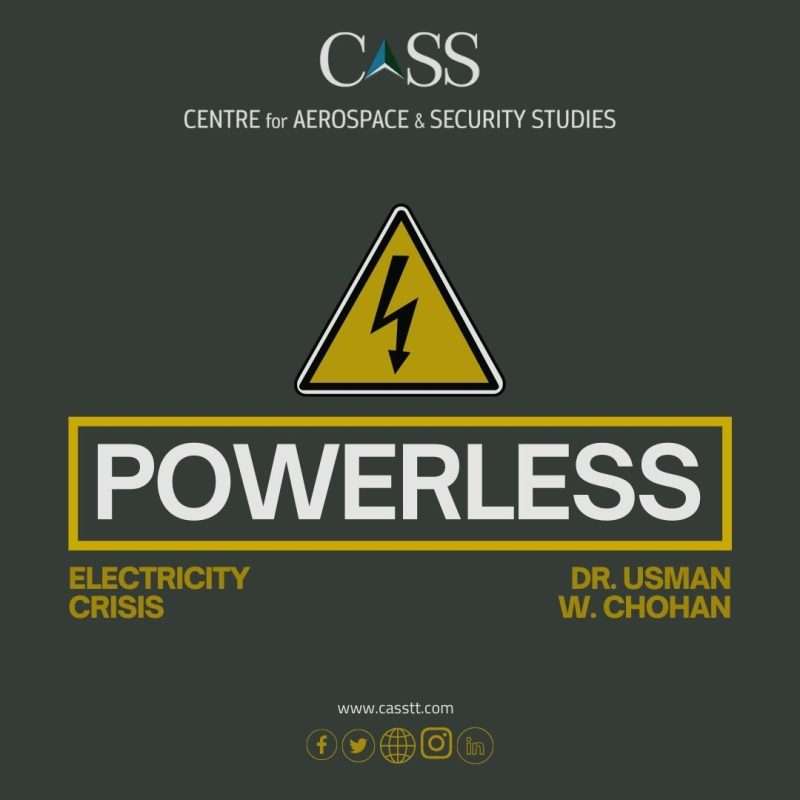The power crisis has made the people powerless.
Much is being said about mounting public discontent regarding their bijli (electricity) bills, with widespread protests having erupted around the country, with some incidences of extreme self-harm among individuals driven to desperation by the unbearable electricity costs. The bijli crisis is indeed the foremost concern for the caretaker government, which has mulled various options for public relief but remains bound by an austerity commitment to the IMF that includes rationalizing the tariffs and curbing circular debt. But even as the government holds steadfast to its agreement with the IMF, the hardship faced by the public is palpable. There are four factors contributing to the public rage: the overall level of rampant inflation, the suddenness of the rise in bills, the indecipherability of the additional charges on the last bills, and the lack of recourse available to contest the rise in bijli (electricity) prices. In such circumstances, people are agitating against the spike in bijli bills. They are bereft of power, and they are powerless.
Now the government is emphasizing that out-of-the box thinking is required, but as I seek to argue, bijli is our most intractable problem and swollen beyond all rationality into an azhdaha (dragon). Whenever a society breeds an azhdaha, it takes an essentially simple and solvable issue and, through the constant intrusion of a million vested interests, politics, ideology, and rhetoric, lets it morph into an irreconcilable beast of a crisis. Societies must, at all costs, nip such problems in the bud, because if allowed to fester into full-blown azhdahas, then only remedies of a grueling nature can be used. Any complex society can fall prey to problems that become so messy in their spiraling contortions, so politically-charged, so infused with vested interests, so distorted by rhetoric, and yet so critical to normal function, that easy resolution becomes an impossibility.
A perfect modern peacetime azhdaha is that of healthcare reform in the United States. The US is the only developed country that lacks a proper, universal healthcare system. It has all the means to solve its healthcare crisis, and after all, every other rich nation has done so. But it cannot, because of a host of serious and now deep-set factors: ideological resentment (antisocialism), racism, big pharma’s meddling, drug-company incentives, corrupt medical practitioners, a bought-out mainstream media, federal-state relations, and indeed much more. As a result, Americans get some of the worst health outcomes, paying high costs for poor service, just so that narrow private interests pocket the gains. Hatred for things like “Obamacare” is so stark that it can bend friendly faces into frothing mouths. Consequently, life expectancy is declining in America, people are being bankrupted by healthcare bills, and opioid-crisis rages, and preventable diseases have become life-threatening.
The analogy of the American healthcare azhdaha can be aptly drawn with Pakistan’s bijli conundrum. It too has so many moving parts that the simplest industrial-age concept (electrification) has proved so daunting. One can point the finger at so many things: WAPDA, the IPPs, the kunda (theft) behavior, old transmission infrastructure (line losses), absurd power plant choices (Sahiwal for coal), low investment in renewables, brainless modern residential-construction practices, corrupt political parties, free units, and so much more. How can the 19th century work of electrification blow up into a crisis that plunges us into darkness? The truth is simple: we are powerless. Figuratively and literally, we lack the power to improve our lives and our systems. While the political to-and-fro pertains to providing “relief” to the public, the subject must be that of reform. Vested interests might lose, people may have to surrender their kundas, rationalized tariffs may need to exist, the grid may need to be upgraded, renewable energy must rise, building-styles must be sensible, and IPPs may need to be “sorted out.” But the dragon must be slayed, the azhdaha put to rest.
Dr. Usman W. Chohan is Advisor (Economic Affairs and National Development) at the Centre for Aerospace & Security Studies, Islamabad, Pakistan. He can be reached at cass.thinkers@casstt.com.




